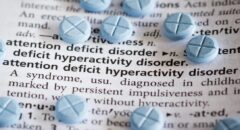managing your time to get things done, ADHD might be the culprit. Often folks with ADHD have a warped sense of time, where a focus on what’s happening right now overshadows the future.
2) Emotional Sensitivity
Another symptom is feeling especially sensitive to criticism and rejection. When folks with ADHD feel they’re being criticized or rejected, it can lead to withdrawing socially or even hostility. ADHD can also be a source of shame for some people as there is still stigma out there surrounding mental health. Often adults who are diagnosed with ADHD have been told their whole lives that they’re lazy or that something is wrong with them because their brains work differently than other people. This can also leave people feeling emotionally sensitive and vigilant to criticism.
1) Sleep Problems
Many folks with ADHD have difficulty sleeping. If you find yourself tossing and turning at night, having trouble falling or staying asleep, or deal with insomnia, this could be related to ADHD. Fatigue from getting poor sleep consistently can also lead to things like difficulty focusing and forgetfulness, which are two classic symptoms of ADHD.
Treatment Options For Adult ADHD
Given that ADHD can be mild to severe, the treatment options will be determined by how badly your life is being affected by the disorder. Persons with mild symptoms have been known to benefit from therapeutic care such as cognitive behavior therapy (CBT).
CBT entails given the patient the skills needed to manage their behavior and negative thinking.
In ore severe cases, you may be prescribed medications to help. The options include stimulants, non-stimulants, and anti-depressants. It’s not unusual for persons to need to change their medications to find the right ones so always let the doctor know if the symptoms have gotten worse or you have other undesirable side effects.
Apart from therapy and getting medication, seeking help can give you great tips for dealing with ADHD. For example, a detailed organizational system can guide you in answering your emails, managing tasks, and prioritizing activities.
Persons who have poor time management skills also find that using alarms and timers gives them more control over their time.
Why The Disorder Can Go Undiagnosed
According to recent statistics, children and adults of color are still less likely to be diagnosed with ADHD than other ethnicities. This phenomenon occurs even when the symptoms are similar or the same.
As health professionals delve into what causes the discrepancy, one factor that has been suggested is the lack of health resources that exist for persons of color when it comes to mental health disorders.
While that continues to be investigated, a less nefarious cause is the fact that the symptoms of ADHD can be masked in the presence of another disorder. For example, persons with a mood disorder such as bipolar disorder may experience stronger bouts of depression because of ADHD but it’s not easy to determine.
Other issues that can affect the diagnosis and subsequent treatment of ADHD include anxiety disorders, personality disorders, substance abuse disorders, and learning disabilities. In rare cases, the treatment programs for certain disorders have been known to make the symptoms of ADHD even worse.
Most health professionals agree that there could be more adults than you think dealing with ADHD. If you’re concerned, it’s best to get assessed as soon as possible. With the right tools, you could be living a much healthier life.








